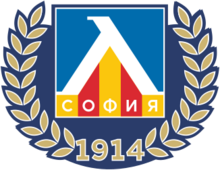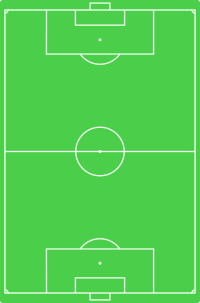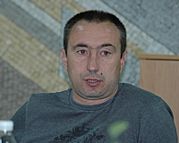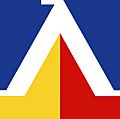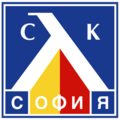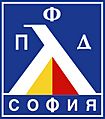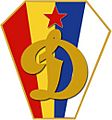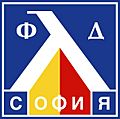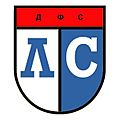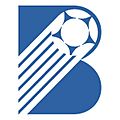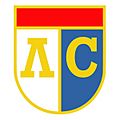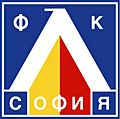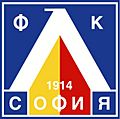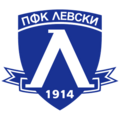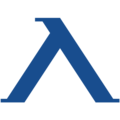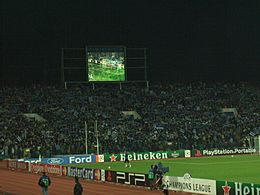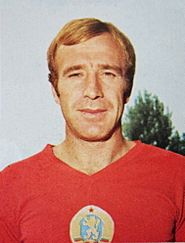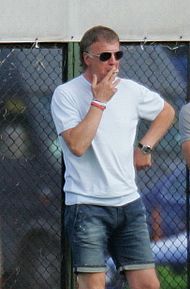PFC Levski Sofia facts for kids
PFC Levski Sofia is a professional football club from Sofia, Bulgaria. They play in the First League, which is the top football league in Bulgaria. The club was started on May 24, 1914, by a group of high school students. It is named after Vasil Levski, a famous Bulgarian revolutionary and national hero.
Levski Sofia has won many awards, with a total of 74 trophies. These include 26 national championships, 26 national cups, and 3 supercups. They have also won 13 domestic "doubles" (winning the league and cup in the same season) and one "treble" (winning three major trophies in one season). Levski is the only Bulgarian football club that has never been moved down from the top league since it began in 1937.
In international games, Levski reached the quarter-finals of the UEFA Cup twice and the Cup Winners' Cup three times. In 2006, they made history by becoming the first Bulgarian club to play in the group stage of the UEFA Champions League, which is Europe's biggest club competition.
The team's home uniform is all blue. Levski's home stadium is the Georgi Asparuhov Stadium in Sofia, which can hold 17,688 fans. Their biggest rival is CSKA Sofia, and their matches are called the Eternal Derby. Levski also plays against Slavia Sofia in the Oldest capital derby, a rivalry that started in 1915.
Contents
Club History and Achievements
Early Years: Sports Club Levski (1914–1969)
|
|
| First kit (1914–1920) |
Sports Club Levski was founded in 1911 by students from the Second Male High School in Sofia. The club was officially registered on May 24, 1914. Its name honors the Bulgarian hero Vasil Levski.
In 1914, Levski played its first official match, losing 2–0 to FK 13 Sofia. Football was not very popular in Bulgaria back then. In 1921, the Sofia Sports League was created, starting organized football in the city. Levski won its first league match 3–1 against Atletik Sofia on September 18, 1921. They won the league title in 1923, beating rivals Slavia Sofia 3–2, and won again in 1924 and 1925.
Levski won the first National Championship in 1933, then again in 1937 and 1942. This made them the most popular football club in Bulgaria. In 1929, Levski became the first semi-professional club in Bulgaria. They also played their first international games, losing to Gallipoli Istanbul and winning against Kuban Istanbul.
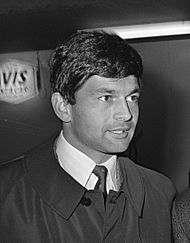
After World War II, Levski became one of the top two clubs in Bulgaria. They won championships in 1946, 1947, 1949, 1950, and 1953. In 1949, the club's name was changed to Dinamo, following Soviet traditions, but it was changed back in 1957. The 1960s brought more success, with many talented young players coming from Levski's youth academy. These players, like Georgi Asparuhov and Kiril Ivkov, helped the team win championships in 1965, 1968, and 1970. A memorable win was 7–2 against rivals CSKA Sofia in 1968.
Merger and New Name: Levski-Spartak (1969–1985)
In January 1969, Levski was combined with Spartak Sofia by the government and renamed Levski-Spartak.
New young players, including Pavel Panov and Kiril Milanov, joined the team. They helped win more league titles in 1974, 1977, 1979, 1984, and 1985. In European competitions, the team reached the quarter-finals of the European Cup Winners' Cup in 1969–70 and 1976–77. They also reached the quarter-finals of the UEFA Cup in 1975–76. In that year, Levski beat Barcelona 5–4 in one game, showing their strength against a major European team.
Another Name Change: Vitosha Sofia (1985–1989)
The team's name was changed to Vitosha by the authorities after some problems during the 1985 Bulgarian Cup final. Some top players from both Levski and CSKA were temporarily banned from playing. The club's 1985 championship title was also put on hold. However, these bans were lifted soon after. Levski, as Vitosha, won another cup and league title in 1986 and 1988. They reached their fourth European quarter-final in 1986–87, losing to Real Zaragoza.
The Blue Tale: Return of Levski Sofia (1989–2009)
After the 1989–90 season, the club got its original name back: Levski Sofia. The team had many great players, including Daniel Borimirov and Nasko Sirakov. They won three national championships in a row from 1993 to 1995. Levski also had a record seven players on the Bulgarian national team that finished fourth at the 1994 FIFA World Cup.
In the 2005–06 season, Levski reached the quarter-finals of the 2005–06 UEFA Cup. They beat strong teams like Auxerre and finished above CSKA Moscow in the group stage. They were eventually knocked out by Schalke 04.
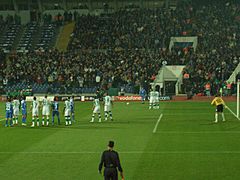
As Bulgarian champions, Levski played in the 2006–07 UEFA Champions League. They beat Sioni Bolnisi and Chievo Verona to become the first Bulgarian club to reach the group stage of the UEFA Champions League. In the group stage, they played against top teams like Barcelona, Chelsea, and Werder Bremen. They lost all six games but scored one goal against Chelsea. This period (2005–2007) was known as the Blue Tale because of the club's great European success.
Challenges and Comeback (2009–Present)
The years after 2009 were tough for Levski. In the 2009–10 UEFA Champions League, they won against UE Sant Julià and FK Baku but were eliminated by Debrecen. They then played in the 2009–10 UEFA Europa League group stage, winning one game against Lazio in Italy.
In the 2010–11 UEFA Europa League, Levski had a good run. They beat Dundalk and Kalmar FF, then eliminated AIK to reach the group stage. There, they faced Gent, Lille, and Sporting CP. Levski won against Gent and Sporting CP, showing strong performances.
However, in the 2011–12 season, Levski was knocked out of the Europa League by Spartak Trnava after a penalty shootout. This upset fans and led to changes in management. The club faced financial difficulties, and some key players were sold. In 2014, Levski did not play in European competitions for the first time since 1990–91.
On May 23, 2014, Levski fans organized a friendly game against Lazio to celebrate the club's 100th anniversary. Many former players and celebrities took part.
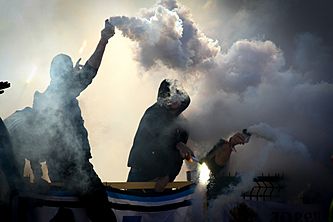
The years that followed were some of the hardest for the club. Levski finished lower in the league than usual and lost two more Bulgarian Cup finals. They also had unexpected losses in European competitions, including a big defeat to AEK Larnaca. The club also faced serious financial problems and changes in ownership. In 2020, the club was left with no funding, leading to an amazing support campaign from fans who donated money to help.
In the summer of 2020, club legend Nasko Sirakov took over most of the shares. The club cut costs and focused on signing Bulgarian and homegrown players. Sirakov aimed to clear most of the club's debt by 2023 through sponsorships, player sales, and fan support.
On September 1, 2021, Stanimir Stoilov, the club's most successful manager in the 21st century, returned. At that time, Levski was in 10th place in the league. With Stoilov's leadership, the team quickly improved.
On May 15, 2022, Levski won the Bulgarian Cup by beating their rivals CSKA 1–0 in the final. This ended the club's longest period without a trophy (13 years). It was their 26th cup win, a record for the club. This win also earned them a spot in the UEFA Europa Conference League qualifications. They surprised many by eliminating PAOK, a strong Greek team, but then lost to Ħamrun Spartans from Malta in a penalty shootout.
Club Symbols
Names and Crests
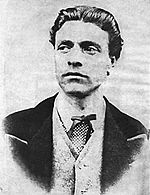
The first club crest was designed in 1922. It was a blue square with a stylized Cyrillic letter "Л" (L for Levski). The inside of the letter was yellow and red. Later, the letters "С" (Sport) and "К" (Club) were added at the top, and "Sofia" at the bottom. This badge was used until 1949 when the club was renamed Dinamo.
From 1949 to 1956, the emblem was a hexagon with red, white, blue, and yellow colors, featuring a handwritten Cyrillic letter "Д" (D for Dinamo) and a red star. The original logo was brought back from 1957 to 1968, but with different letters.
After merging with Spartak Sofia in 1969, the crest became a blue and white shield with a red bar. It had the letters "Л" and "C" for Levski-Spartak. This crest was used until 1985 when the club was renamed Vitosha. Vitosha's crest was a blue and white "C" shape around a football.
In January 1990, the club returned to its original name and logo. The letters "C" and "K" were replaced with "Ф" (Football) and "К" (Club). Due to legal issues, a new shield logo was introduced in 1998, which was all blue with the letter "Л" and the founding year 1914. After winning the legal dispute in 2006, the club briefly used both crests. Later that year, the classic square emblem became the main one again.
Today, the Cyrillic letter Л (L) is used on the club's uniforms and social media.
Club Anthem
The first anthem for Levski was written by the famous Bulgarian poet Dimcho Debelyanov. Since 1999, the club's anthem is "Само Левски шампион" (Only Levski, the champion).
Home Stadium
At first, the club did not have its own field. They trained on an empty space called The Hillock. In 1924, the Sofia Municipality gave the club land for a stadium. Ten years later, the Levski Field stadium was finished. It could hold 10,000 people and was considered the best sports facility in the city.
In 1949, the stadium became government property, and the Vasil Levski National Stadium was built there. Levski played in different places before moving to the Dinamo ground. In 1961, the team moved to the Suhata Reka neighborhood, where a new stadium was built by 1963. It was later renamed in 1990 to honor former Levski player Georgi Asparuhov.
In 1999, the stadium was rebuilt and could hold 29,000 spectators. The field is 105 by 68 meters. However, the team plays most of its important international matches at the national stadium, Vasil Levski.
In October 2012, Levski announced plans to renovate their stadium. The first part of the renovation was finished in 2014, for the club's 100th anniversary. By 2013, the capacity was reduced to 19,000 because the main stand was being rebuilt. The main stand, which holds 6,000 fans, officially opened on April 23, 2016. Since 2019, the Museum of Glory of Levski Sofia is also located at the stadium.
Supporters
Historically, Levski Sofia fans gather in the south stand of the stadium. This tradition comes from the Sofia Derby, where Levski fans would meet near the southern end of the Vasil Levski National Stadium before matches. Because of how stadiums are named in Bulgaria, Sector B is now known as the section for Levski fans.
Fans in Sector B are part of the ultras movement, which is popular in the Balkans. They lead most of the songs, choreographies (organized displays), and pyrotechnics (flares and smoke) at Levski's matches.
Levski supporters are organized into fan clubs, like the National Supporters Club, which helps fans from all over Bulgaria. There are also groups from Sofia and other cities around the world. Ultras Levski have a long-standing friendship with Lazio fans from Italy. A study by UEFA found that Levski is the most popular Bulgarian club.
Players
First Team Squad
|
|
Youth Academy
Levski's youth academy has helped develop many successful Bulgarian footballers. Some famous players who came from the academy include Georgi Asparuhov, Nasko Sirakov, and Hristo Yovov. At the 1994 FIFA World Cup, where Bulgaria reached the semi-finals, four players from Levski's youth academy were on the Bulgarian team. In 2020, Levski was ranked 35th in Europe by the CIES Football Observatory for training the most players active in top leagues.
Club Records
- Biggest league win: 10–0 vs Chernomorets Burgas Sofia (2007)
- Biggest league defeat: 1–6 vs Botev Plovdiv (1962)
- Biggest cup win: 12–1 vs Knyaz Kiril Sofia (1940)
- Biggest European competition win: 12–2 vs
 Reipas Lahti (1976)
Reipas Lahti (1976) - Most consecutive league games unbeaten at home: 203 games (from 1966 to 1985)
- Most consecutive league games unbeaten: 27 games (from 1948 to 1950)
- Record league home attendance: 60,000 vs Pirin Blagoevgrad (1973)
- Record European competition home attendance: 55,000 vs
 Barcelona (1976)
Barcelona (1976) - Record outgoing transfer:
 Georgi Ivanov to
Georgi Ivanov to  Rennes for €4,100,000
Rennes for €4,100,000
Player Records
Most Appearances
| No. | Name | Career | Appearances |
|---|---|---|---|
| 1 | 1967–1981 | 469 | |
| 2 | 1974–1990 | 429 | |
| 3 | 1969–1981 | 382 | |
| 4 | 1967–1978 | 374 | |
| 5 | 1996–2008 2009–2010 |
347 |
Most Goals Scored
| No. | Name | Career | Goals | Appearances | Goals per game |
|---|---|---|---|---|---|
| 1 | 1981–1994 | 209 | 264 | 0.79 | |
| 2 | 1969–1981 | 177 | 382 | 0.46 | |
| 3 | 1959–1971 | 153 | 239 | 0.64 | |
| 4 | 1997–2009 | 135 | 238 | 0.57 | |
| 5 | 1954–1959 1961–1968 |
132 | 330 | 0.4 |
Bulgarian Footballer of the Year Winners
Several Levski players have won the prestigious Bulgarian Footballer of the Year award:
- 1931 –
 Asen Peshev
Asen Peshev - 1942 –
 Lyuben Stamboliev
Lyuben Stamboliev - 1948 –
 Vasil Spasov
Vasil Spasov - 1965 –
 Georgi Asparuhov
Georgi Asparuhov - 1970 –
 Stefan Aladzhov
Stefan Aladzhov - 1974 –
 Kiril Ivkov
Kiril Ivkov - 1975 –
 Kiril Ivkov
Kiril Ivkov - 1977 –
 Pavel Panov
Pavel Panov - 1984 –
 Plamen Nikolov
Plamen Nikolov - 1986 –
 Borislav Mihaylov
Borislav Mihaylov - 1987 –
 Nikolay Iliev
Nikolay Iliev - 1999 –
 Aleksandar Aleksandrov
Aleksandar Aleksandrov - 2000 –
 Georgi Ivanov
Georgi Ivanov - 2001 –
 Georgi Ivanov
Georgi Ivanov
First Division Top Goalscorers
Many Levski players have been the top goalscorer in the Bulgarian First Division:
- 1940 –
 Yanko Stoyanov (14 goals)
Yanko Stoyanov (14 goals) - 1950 –
 Lubomir Hranov (11 goals)
Lubomir Hranov (11 goals) - 1957 –
 Hristo Iliev (14 goals)
Hristo Iliev (14 goals) - 1960 –
 Dimitar Yordanov (12 goals)
Dimitar Yordanov (12 goals) - 1965 –
 Georgi Asparuhov (27 goals)
Georgi Asparuhov (27 goals) - 1974 –
 Kiril Milanov (19 goals)
Kiril Milanov (19 goals) - 1976 –
 Pavel Panov (18 goals)
Pavel Panov (18 goals) - 1977 –
 Pavel Panov (20 goals)
Pavel Panov (20 goals) - 1979 –
 Rusi Gochev (19 goals)
Rusi Gochev (19 goals) - 1982 –
 Mihail Valchev (24 goals)
Mihail Valchev (24 goals) - 1984 –
 Emil Spasov (19 goals)
Emil Spasov (19 goals) - 1987 –
 Nasko Sirakov (36 goals)
Nasko Sirakov (36 goals) - 1988 –
 Nasko Sirakov (28 goals)
Nasko Sirakov (28 goals) - 1992 –
 Nasko Sirakov (26 goals)
Nasko Sirakov (26 goals) - 1993 –
 Plamen Getov (26 goals)
Plamen Getov (26 goals) - 1994 –
 Nasko Sirakov (30 goals)
Nasko Sirakov (30 goals) - 2001 –
 Georgi Ivanov (21 goals)
Georgi Ivanov (21 goals) - 2003 –
 Georgi Chilikov (22 goals)
Georgi Chilikov (22 goals) - 2011 –
 Garra Dembele (26 goals)
Garra Dembele (26 goals) - 2013 –
 Basile de Carvalho (19 goals)
Basile de Carvalho (19 goals) - 2015 –
 Añete (14 goals)
Añete (14 goals) - 2019 –
 Stanislav Kostov (24 goals)
Stanislav Kostov (24 goals)
Images for kids
See also
 In Spanish: PFC Levski Sofia para niños
In Spanish: PFC Levski Sofia para niños
 | Jessica Watkins |
 | Robert Henry Lawrence Jr. |
 | Mae Jemison |
 | Sian Proctor |
 | Guion Bluford |


